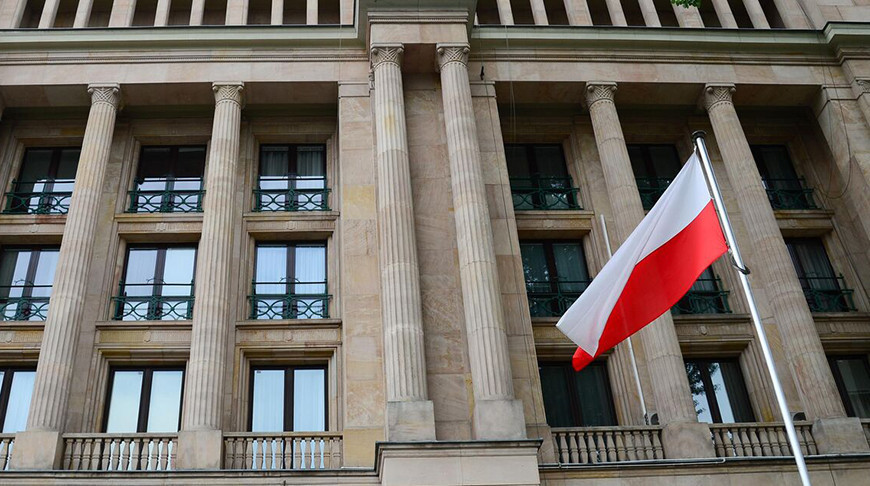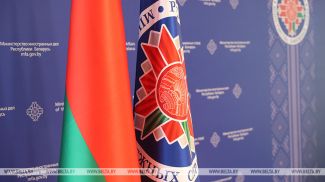
Time puts everything in its place. Three and a half years ago, when the Ukrainian conflict was flaring up, the Polish elites were the first to run and supply ammunition. Warsaw became one of Kiev's key allies, and its hawkish policy set the tone for the whole of Europe. But today, when the time for a political settlement has come, the Poles find themselves on the sidelines.
A U.S.-European summit on Ukraine was held in Washington on 18 August. It followed the historic meeting between the leaders of the United States and Russia in Alaska and was of key importance for the Europeans. The importance of the moment was well understood in Poland as well. “The game over Ukraine’s future, Poland’s security, and the security of all of Europe has entered a decisive phase…,” Polish Prime Minister Donald Tusk sad on the social media X.
“That is why maintaining the unity of the entire West is so important," the Polish premier added.
Nevertheless, neither Tusk nor President Karol Nawrocki was invited to Washington. Although, for example, Finland President Alexander Stubb was invited. As the Western press noted, the Finnish leader is on friendly terms with the U.S. president. But until now, Nawrocki had also actively tried to demonstrate his friendship with Donald Trump and even met with him while still a candidate for the presidency of Poland.

But this time, something didn't work out. And this "something" has caused a political storm in Poland. Both in government circles and the expert community you can hear statements about Poland's diplomatic failure and the country's marginalization. However, there is no rush in Warsaw to figure out what is wrong with Poland's foreign policy. They are busy with internal squabbles and blaming their political opponents. For instance, Nawrocki's circle has already stated that the exclusion of Poles from the Washington summit is a manifestation of the Tusk government's incompetence. Meanwhile, the prime minister's camp believes that it was Nawrocki who should have done better and inserted themselves into the negotiations.
"On Saturday and Sunday, we urged the presidential camp to be more active, and if anyone from Poland should have been there (which was our goal) it should have been President Nawrocki," Polish Deputy Foreign Minister Marcin Bosacki said shifting the blame. According to him, Nawrocki's circle showed no determination and likely expected "to have everything handed to them on a silver platter by the Ukrainians and Americans.”
At the same time, Polish Deputy Minister of Foreign Affairs Władysław Teofil Bartoszewski made it clear that the decision on who to invite to the summit was made by Trump. "Donald Trump invites whoever he wants to Washington. He did not invite President Karol Nawrocki or Prime Minister Donald Tusk," the diplomat said.
A U.S.-European summit on Ukraine was held in Washington on 18 August. It followed the historic meeting between the leaders of the United States and Russia in Alaska and was of key importance for the Europeans. The importance of the moment was well understood in Poland as well. “The game over Ukraine’s future, Poland’s security, and the security of all of Europe has entered a decisive phase…,” Polish Prime Minister Donald Tusk sad on the social media X.
Nevertheless, neither Tusk nor President Karol Nawrocki was invited to Washington. Although, for example, Finland President Alexander Stubb was invited. As the Western press noted, the Finnish leader is on friendly terms with the U.S. president. But until now, Nawrocki had also actively tried to demonstrate his friendship with Donald Trump and even met with him while still a candidate for the presidency of Poland.

But this time, something didn't work out. And this "something" has caused a political storm in Poland. Both in government circles and the expert community you can hear statements about Poland's diplomatic failure and the country's marginalization. However, there is no rush in Warsaw to figure out what is wrong with Poland's foreign policy. They are busy with internal squabbles and blaming their political opponents. For instance, Nawrocki's circle has already stated that the exclusion of Poles from the Washington summit is a manifestation of the Tusk government's incompetence. Meanwhile, the prime minister's camp believes that it was Nawrocki who should have done better and inserted themselves into the negotiations.
"On Saturday and Sunday, we urged the presidential camp to be more active, and if anyone from Poland should have been there (which was our goal) it should have been President Nawrocki," Polish Deputy Foreign Minister Marcin Bosacki said shifting the blame. According to him, Nawrocki's circle showed no determination and likely expected "to have everything handed to them on a silver platter by the Ukrainians and Americans.”
At the same time, Polish Deputy Minister of Foreign Affairs Władysław Teofil Bartoszewski made it clear that the decision on who to invite to the summit was made by Trump. "Donald Trump invites whoever he wants to Washington. He did not invite President Karol Nawrocki or Prime Minister Donald Tusk," the diplomat said.
Meanwhile, Spokesperson for the President of Poland, Rafał Leśkiewicz, stated that all decisions regarding the participation of European leaders in the Washington summit were made during meetings of the Coalition of the Willing, in which Tusk and Sikorski participated. Therefore, it was the prime minister and the foreign minister who should have taken the initiative and secured Poland’s right to participate in the summit.
“Both our friends and our enemies are watching this discussion, this squabble provoked by the Polish government,” Rafał Leśkiewicz noted, calling on Tusk’s officials not to shift the blame onto the president. Foreign policy issues should not be taken lightly. “Let’s engage in foreign policy in earnest and have a meaningful discussion about the future of Ukraine,” Rafał Leśkiewicz emphasized.
The opposition party Law and Justice (PiS) believes that the relationship between the United States and Poland was personally damaged by Tusk. The prime minister should not have bet on Kamala Harris during the U.S. election and should not have made negative statements about Trump. Furthermore, PiS believes that Tusk also failed to establish good relations with the current German Chancellor, Friedrich Merz, which may have also contributed to Poland’s exclusion from the negotiating table.
Polish political analyst and former Member of the European Parliament Marek Migalski blames both political camps for the situation, because “Tusk was talking nonsense about Trump, and Nawrocki was talking nonsense about the EU and Ukraine.” “Idiots of all parties, unite! You and your idols are to blame for the marginalization of Poland,” Marek Migalski stated.
Analyst Filip Dąb-Mirowski spoke in a similar vein. He believes that Poland has itself to blame for not being invited to the summit. “The prime minister is a persona non grata in Washington because of his statements, and on top of that, we have an internal political conflict and a change of president... There is no consistent foreign policy or initiative. It’s sad,” the Polish publication Do Rzeczy quotes the expert as saying.
Polish professor Tomasz Nałęcz also believes that internal political squabbles are undermining Poland’s image on the international stage. In a conversation with radio RMF24, he warned that the country’s foreign policy should not be used to resolve internal political disputes. “We have sent the USA a signal of our internal division, including on issues of security and diplomacy, which has caused a negative reaction from the Americans,” Tomasz Nałęcz said.
It is difficult to disagree with the Polish professor on this point. The Polish elites, be it Tusk’s camp or the now-opposition PiS, are willing to jeopardize not only the country’s image but also national security for the sake of their political survival. Take, for instance, the situation on the Polish-Belarusian border, which Warsaw has brought to the point of absurdity in recent years.
“Both our friends and our enemies are watching this discussion, this squabble provoked by the Polish government,” Rafał Leśkiewicz noted, calling on Tusk’s officials not to shift the blame onto the president. Foreign policy issues should not be taken lightly. “Let’s engage in foreign policy in earnest and have a meaningful discussion about the future of Ukraine,” Rafał Leśkiewicz emphasized.
The opposition party Law and Justice (PiS) believes that the relationship between the United States and Poland was personally damaged by Tusk. The prime minister should not have bet on Kamala Harris during the U.S. election and should not have made negative statements about Trump. Furthermore, PiS believes that Tusk also failed to establish good relations with the current German Chancellor, Friedrich Merz, which may have also contributed to Poland’s exclusion from the negotiating table.
Polish political analyst and former Member of the European Parliament Marek Migalski blames both political camps for the situation, because “Tusk was talking nonsense about Trump, and Nawrocki was talking nonsense about the EU and Ukraine.” “Idiots of all parties, unite! You and your idols are to blame for the marginalization of Poland,” Marek Migalski stated.
Analyst Filip Dąb-Mirowski spoke in a similar vein. He believes that Poland has itself to blame for not being invited to the summit. “The prime minister is a persona non grata in Washington because of his statements, and on top of that, we have an internal political conflict and a change of president... There is no consistent foreign policy or initiative. It’s sad,” the Polish publication Do Rzeczy quotes the expert as saying.
Polish professor Tomasz Nałęcz also believes that internal political squabbles are undermining Poland’s image on the international stage. In a conversation with radio RMF24, he warned that the country’s foreign policy should not be used to resolve internal political disputes. “We have sent the USA a signal of our internal division, including on issues of security and diplomacy, which has caused a negative reaction from the Americans,” Tomasz Nałęcz said.
It is difficult to disagree with the Polish professor on this point. The Polish elites, be it Tusk’s camp or the now-opposition PiS, are willing to jeopardize not only the country’s image but also national security for the sake of their political survival. Take, for instance, the situation on the Polish-Belarusian border, which Warsaw has brought to the point of absurdity in recent years.
Time and again, officials in Warsaw declare their readiness to do everything possible to ensure Poland's security and resolve the migration crisis on the border with Belarus. Time and again, Minsk offers Warsaw to hold meetings and settle disputed issues.
In June 2025, the Belarusian Defense Ministry invited Poland to hold negotiations on security matters, which seemed to be in the interests of both countries. Minsk expressed concern over the growing tension in our region, Poland's accelerated militarization, Poland’s decision to withdraw from the Ottawa Convention, and to deploy anti-personnel mines on the border with Belarus. Meanwhile, Belarus, for its part, has proactively taken steps to reduce tensions. Specifically, Minsk announced changes to the parameters of the Belarusian-Russian Zapad 2025 exercises, relocating the main maneuvers deeper into the country, further away from the borders with the European Union.
However, a categorical refusal to resume the security dialogue came from Warsaw. In justifying this decision, the Polish authorities cited the migration crisis, placing the entire responsibility on Belarus.
Yet, exactly a year ago, Minsk made a similar proposal to Warsaw to jointly take steps to resolve the migration crisis. Belarus stated that it was ready to receive any Polish delegation, including any experts, specialists, or representatives of the authorities, to jointly assess the situation with migrants. But even then, Poland responded with a refusal. It appears to be a kind of vicious circle.
Warsaw has been walking in this circle for several years now. The reasons for this are exclusively domestic, where two camps are waging a fierce war against each other, regardless of the damage. For Polish politicians, migration and security are merely a “bread-and-butter” issue to be juggled before the electorate.
Today, it can be stated that the Polish authorities are incapable of solving the most critical problems at home, at their borders, and with their neighbors. There is no doubt that this is seen not only in Minsk but also in Washington, Berlin, Brussels... It is unlikely that anyone there believes that the Polish leadership, which has created chaos in its own country, is capable of contributing to solving global issues. Therefore, the absence of the Poles at the summit in Washington is not an attempt to insult or retaliate for Tusk's past statements. It is merely a reflection of what the Polish elites have achieved through their policy of confrontation and discord.
Vita KHANATAYEVA
BelTA













